Related
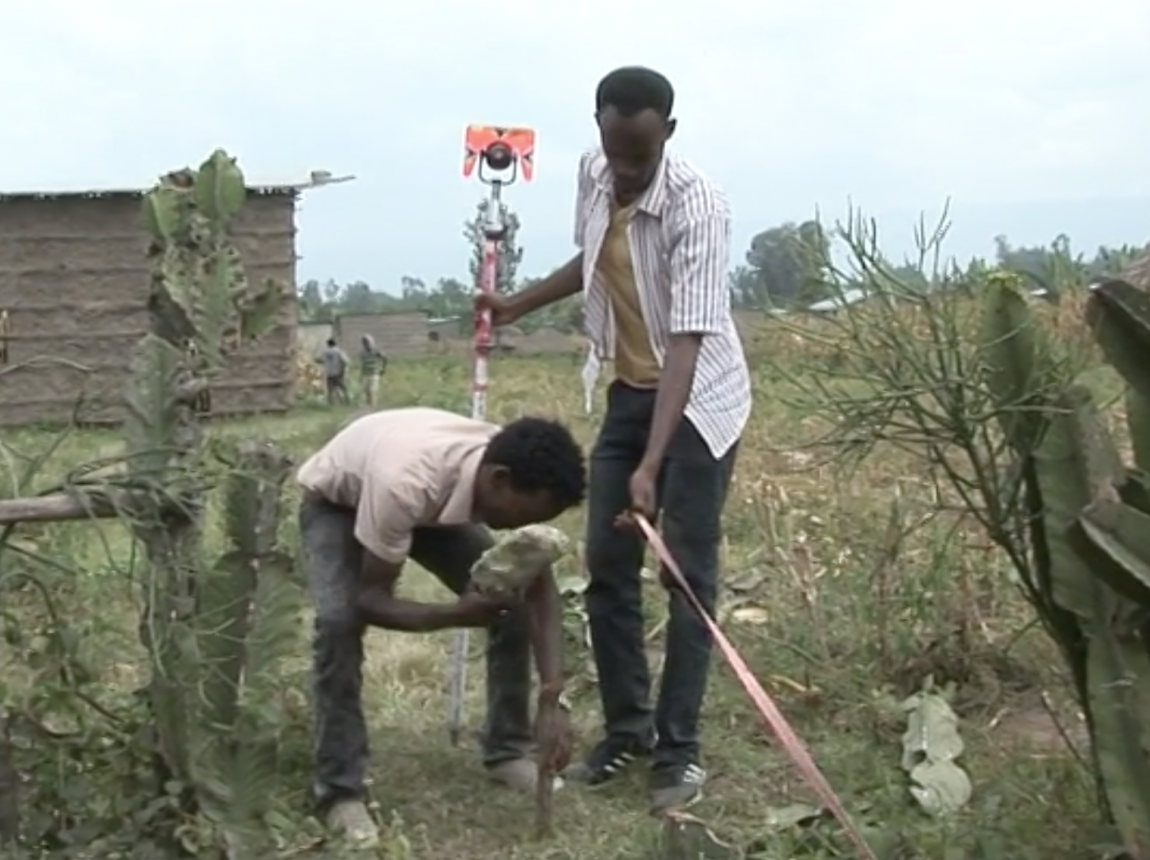
Sep 22,2020
How They Do It in Ethiopia
Making Room for Urban Expansion
by
Patrick Lamson-Hall

Mar 19,2018
Throughout the Spring 2019 semester, the Marron Institute has worked with a group of Stern Signature Project MBA students to develop an assessment of the quality, accessibility, inclusiveness, and value of public spaces in the city of Portoviejo, Ecuador. The data, findings, and recommendations that result from this project will offer valuable insight into the conditions and public perceptions of parks in the city, and will contribute to global efforts to promote universal access to safe, inclusive and accessible, green and public spaces, particularly for women and children, older persons and persons with disabilities, by 2030.
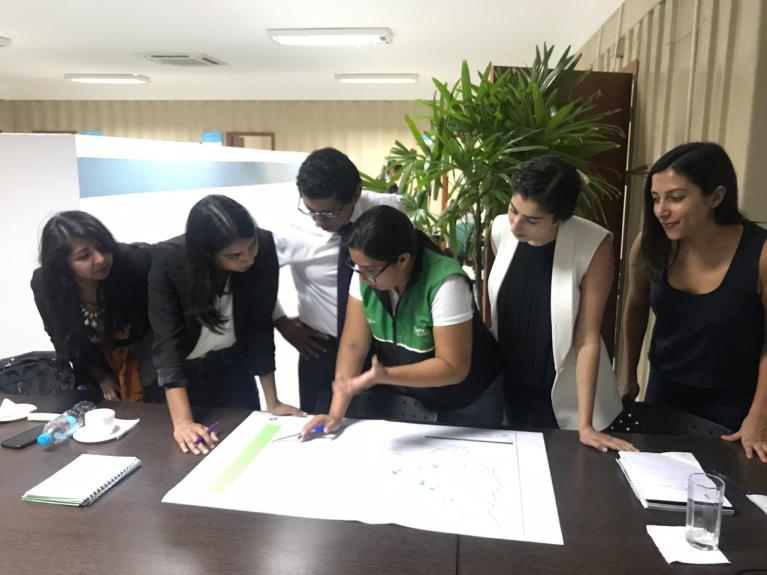
In line with its goal of promoting sustainable urbanization, the Marron Institute works closely with the United Nations Human Settlements Programme (UN-HABITAT) to develop tools and mechanisms that can effectively monitor and evaluate progress on the implementation of Sustainable Development Goal 11 for safe, accessible, and inclusive cities. UN-HABITAT has developed the UN Global Open Space Assessment Tool to survey public spaces and capture relevant information regarding the features, accessibility, safety, and inclusiveness of public spaces in cities. The app allows surveyors to input information regarding the location, facilities, and overall conditions of the spaces, and note perceptions of safety and accessibility through interviews with users.
Stern Signature Projects allow students to apply their academic knowledge to tackle today’s most pressing issues in the field through interdisciplinary partnerships. The two main objectives of this Signature Project were to, 1) test and make recommendations for improving the Asessment Tool; and 2) provide a preliminary assessment of the public spaces in Portoviejo to offer recommendations to the city government on how to improve and better leverage the benefits of public open spaces in the city. In addition, the data collected will remain available for both UN-HABITAT and the City of Portoviejo for further reference.
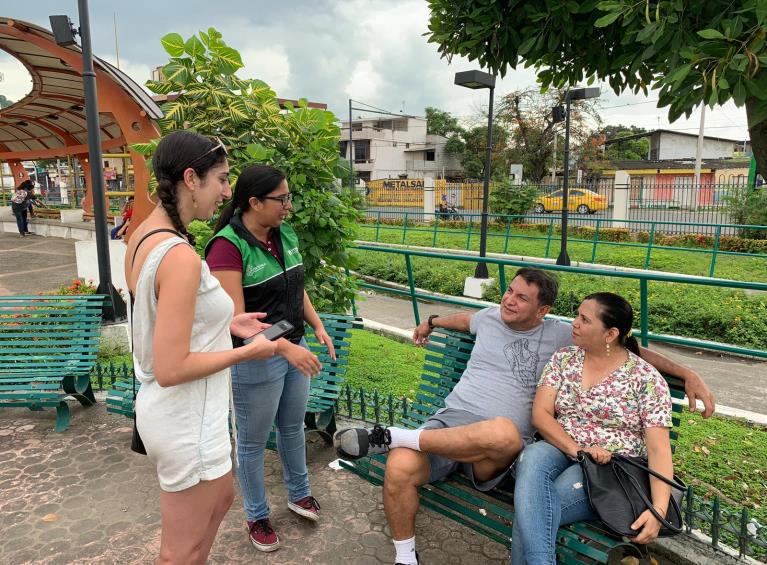
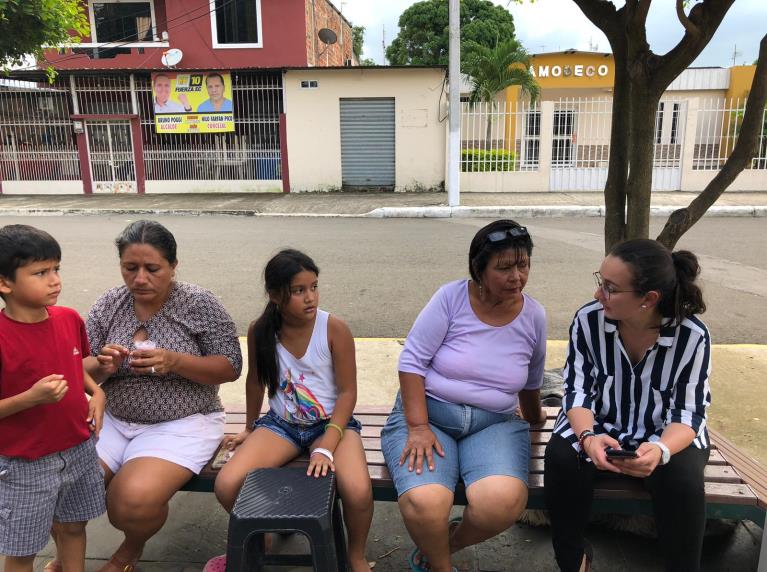
Portoviejo’s recovery from its tragic 2016 earthquake has been closely linked to its strategy regarding public open spaces. The city’s mayor (who was recently re-elected for a second term) became popularly known as the “Mayor of the Parks” for his steady investment in open public spaces as a way of promoting the wellbeing of the city’s residents, as well as to promote the city’s resilience.
The team spent a week in Portoviejo working alongside the city’s Department of City Planning and PortoParques, the agency in charge of developing and maintaining public spaces. They identified a total of 63 public open spaces, and over the course of two days surveyed 47 of them and conducted 63 interviews with users of different demographic characteristics. Based on these activities, they concluded that parks are a major source of pride for the residents of Portoviejo, and that many residents feel a strong sense of ownership for these spaces and appreciate the opportunity they offer for them to exercise, play, and socialize. They encouraged the city government to continue efforts to increase lighting to help perceptions of safety, maintain playground areas to ensure the safety of their users, and formalize community engagement and maintenance of the parks through volunteer programs and awareness campaigns.
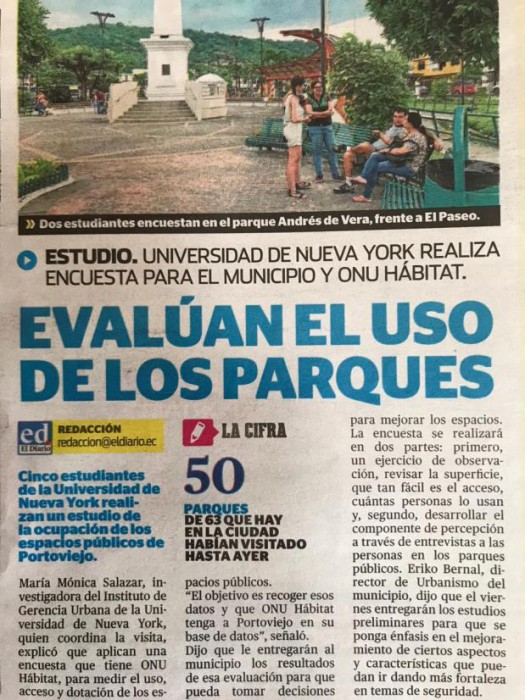
To read the local news article, click here.
As part of their research, the team is also hoping to provide an assessment of the economic value offered by public spaces, in terms of health benefits and property values, among others. Such information will help raise awareness of the social and economic value of public open spaces, and will advocate for a greater investment in these areas throughout the world’s cities.
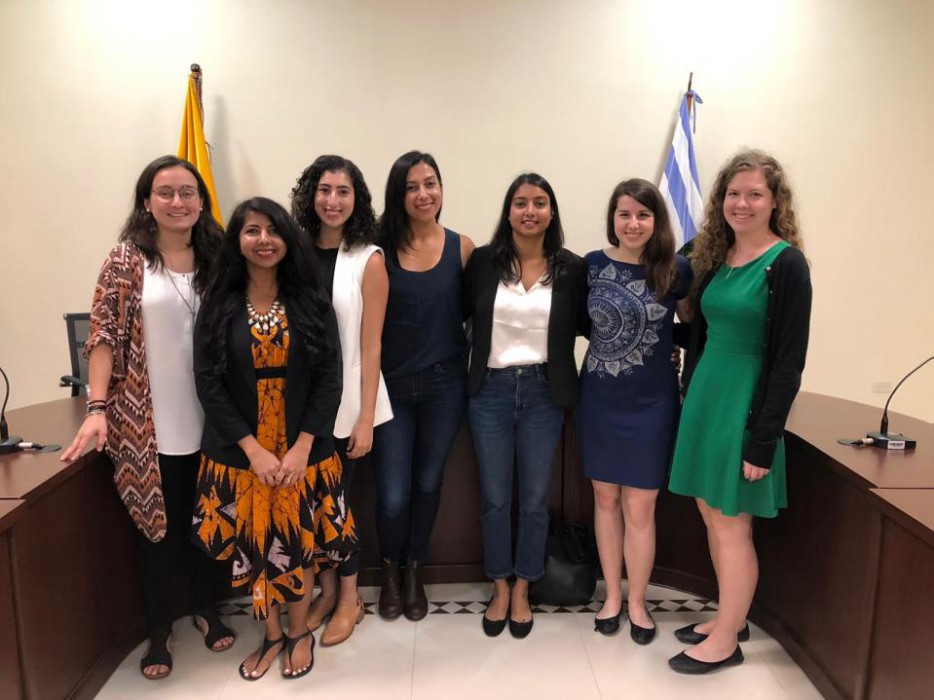
Please fill out the information below to receive our e-newsletter(s).
*Indicates required.